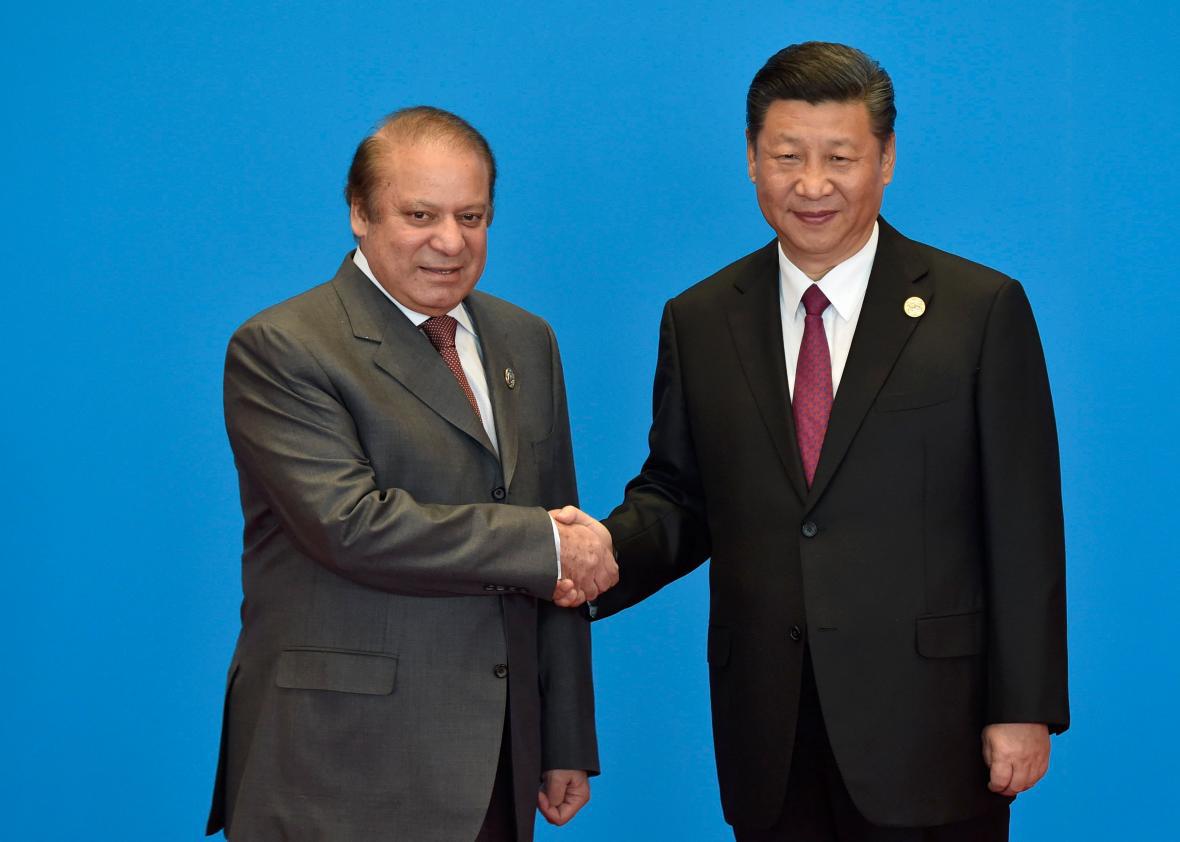Pakistan, a key U.S. ally in the war against terrorism, is growing closer to China. Since announcing in 2014 plans for the $46 billion China-Pakistan Economic Corridor—a trade route connecting China to the Indian ocean—the countries have become strong partners in trade, defense, and regional cooperation, leading some observers to wonder whether China is moving in to fill what has long been the U.S. role in Pakistan: providing the country with aid in return for strategic military bases.
Now, according to a report on Monday by NBC News, China is considering establishing a naval base of its own in Pakistan’s southwestern port of Gwadar. The report, authored by veteran Pakistani journalist Wajahat S. Khan, is based on accounts of unnamed insiders in the Pakistani military and intelligence community, and there is no confirmation from Chinese officials. “We need an equalizer against India,” one anonymous Pakistani intelligence official told Khan, referring to the Chinese naval base’s ability to counter rivaling India’s significantly more powerful military. “Previously, it was the U.S. and Saudi [Arabia]. Now, it’s China.”
On Saturday, a Chinese navy task group visited Pakistan, where, according to local media reports, the two countries conducted joint operational training activities. Pakistan’s chief of naval staff released a statement saying that the visit is “expected to enhance interoperability and maritime collaboration between the two navies.” The visit also comes on the heels of news that China’s first overseas naval base is currently being built in Djibouti.
Fears of a possible Chinese naval base in Pakistan were expressed in a new Pentagon report to Congress released in May, titled “Military and Security Developments in China.” The report noted that China may consider expanding its overseas naval presence in countries “such as Pakistan” and observed “an increase in capability and force posture by the Chinese military in areas close to the border with India.” The Pentagon concluded that these moves by Beijing may have the long-term effect of challenging U.S. interests.
Last week, a representative of China’s Foreign Ministry said that China is “firmly opposed” to the conclusions in the Pentagon report, which Beijing considers “irresponsible remarks on China’s national defense development and reasonable actions in defending our territorial sovereignty and security interests in disregard of the facts.”
While the ministry spokeswoman Hua Chunying did not disclose any information about a possible naval base in Pakistan, she defended China’s relationship with the country. “I would like to stress that as neighbors with traditional friendship, China and Pakistan have conducted broad cooperation in various fields for win-win results and mutual benefits for a long time. The China-Pakistan friendly cooperation does not target any third party and conforms to each other’s international commitments.”
